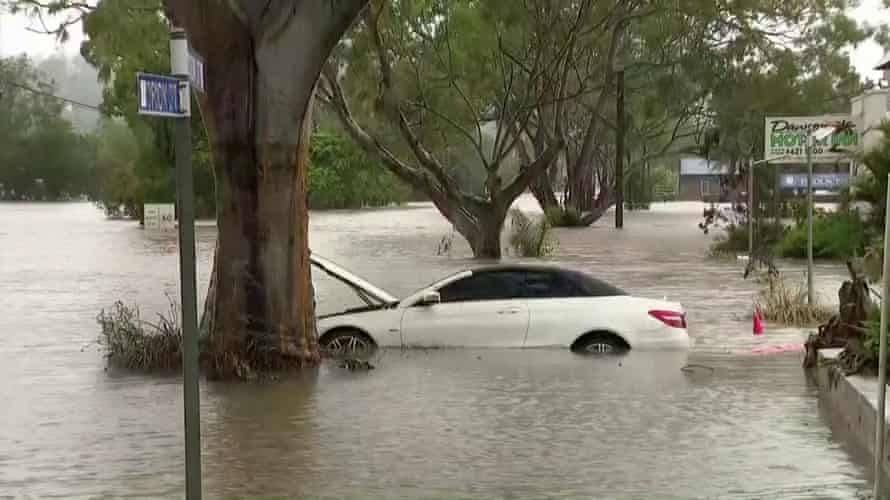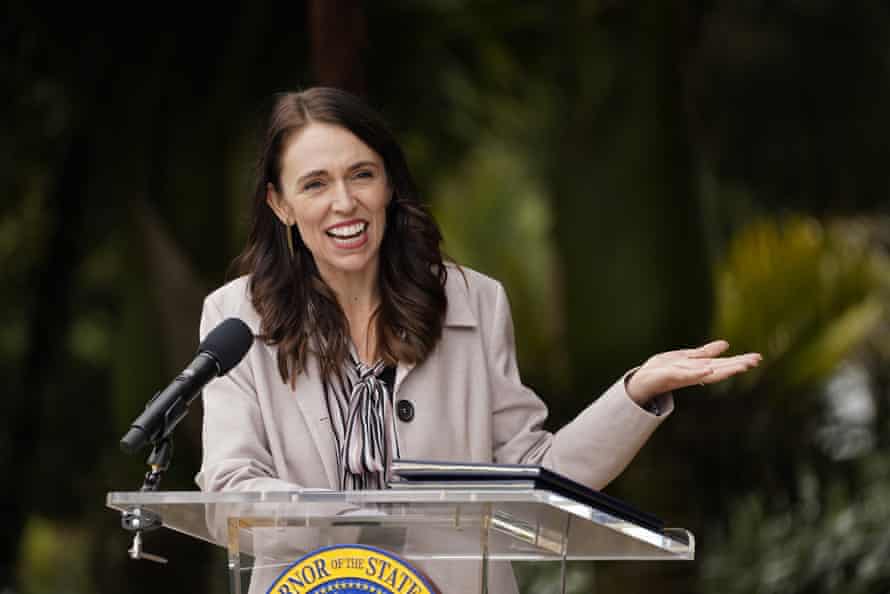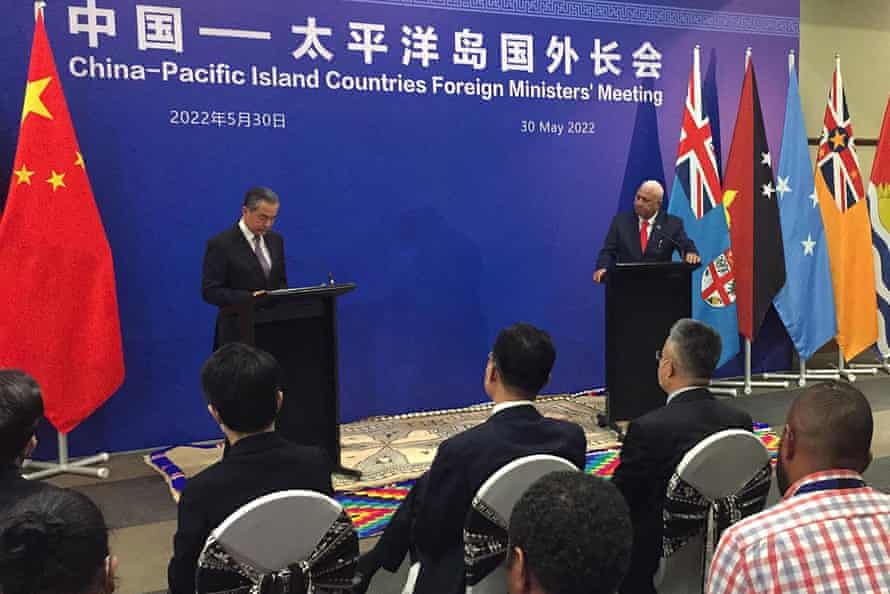
Vote counting resumes in remaining seats of Gilmore, Deakin and Macnamara
Here’s an update on the post-election state of play, via AAP:
Vote counting in crucial marginal seats has resumed more than a week since the federal election, with Labor on the cusp of securing a majority government.
Labor is currently on 75 seats in the house of representatives, according to the Australian Electoral Commission, one short of the 76 needed to govern in its own right.
Large numbers of absentee and declaration votes are expected to be counted on Monday.
Three seats remain in doubt, including the electorates of Gilmore, Deakin and Macnamara.
In Gilmore on the NSW south coast, Labor incumbent Fiona Phillips was ahead by 142 votes as of 1pm on Monday.
The narrow lead for Labor comes following absentee votes being counted.
Liberal Michael Sukkar has marginally increased his lead in the Melbourne seat of Deakin to 891 votes over Labor’s Matt Gregg.
The Melbourne seat of Macnamara is also another tight contest, with a three-horse race still under way between Labor, the Liberals and the Greens.
As of Monday, Liberal candidate Colleen Harkin is on 33.56%, with Labor’s Josh Burns on 33.5% and Steph Hodgins-May from the Greens on 32.93%.
The ABC’s election analyst, Antony Green, said the large number of declaration votes being counted on Monday should clarify the final result in marginal seats, unless the contests remained too close to call.
The three seats left in doubt will have no fresh counting today. Staff will be processing declaration envelopes to be ready for a big count on Monday. That should clarify the final result – unless the three seats remain ultra-close. #ausvotes
— Antony Green – elections (@AntonyGreenElec) May 29, 2022
It comes as both the Liberal and National parties met in Canberra on Monday to elect their new leaders.
Peter Dutton was elected unopposed as the next Liberal leader and opposition leader, with Sussan Ley also elected unopposed as the party’s deputy.
After a marathon party meeting, the Nationals selected David Littleproud as the next leader and Perin Davey as the deputy.
Meetings will take place on Tuesday within the government to determine the make up of the new cabinet.
The new front bench will be formally sworn into their roles on Wednesday.
That’s it for today, thanks for reading.
Here are the main stories on Monday, 30 May:
We’ll see you all again tomorrow.
Northern Territory to permit alcohol in remote Aboriginal communities that do not opt out
A fascinating story out of the Northern Territory about the remote dry communities where alcohol may soon be legal, via AAP:
The Northern Territory government has released a list of the remote dry Indigenous communities where alcohol will soon be permitted.
A new NT law to replace expiring Intervention-era commonwealth alcohol restrictions requires communities to ask for the ban to continue past 16 July.
If they don’t, it will no longer be illegal for people to sell or drink alcohol in 144 remote and currently dry communities.
This includes Peppimenarti, 325km southwest of Darwin, which was rocked by civil unrest and gunfire last year.
Also on the list is the closed community of Bulman, 310km northeast of Katherine, and Amanbidji near the Western Australian border.
The NT government says any person or entity that wishes to sell alcohol in a remote community must apply to the NT Liquor Commission for a license.
“This is a robust statutory process governed by the Liquor Act 2019 requiring strict criteria to be met, and is subject to any condition placed on it by the Liquor Commission,” a spokesperson told AAP.
It is also contacting communities to educate them about the law change and help them opt-in if they want restrictions to continue.
“The [government] will be providing additional resourcing to support stakeholder groups and community organisations to lead consultations,” the spokesperson said.
Peak social service and medical groups slammed the legislation, which was passed on 17 May, saying the number of affected communities is more than 400.
The North Australian Aboriginal Justice Agency’s chief executive, Priscilla Atkins, said the move is likely to have a devastating impact on communities.
“We already have so many problems related to alcohol. Our hospitals are full, our domestic violence rates are the highest in the nation and rising, and the justice system is clogging up” she said.
“What the NT government has just done will add to that harm. It’s absolutely disgusting.”
The Aboriginal Medical Services Alliance Northern Territory said the legislation was rushed through parliament without consulting key stakeholders.
“It will now be up to the federal government to do what is needed given the failure of the NT government to listen and respond to requests for an ‘opt out’ system,” said John Boffa of the People’s Alcohol Action Coalition.
About 100 communities under other NT liquor restrictions before the commonwealth law came into force in 2007 will revert to the previous controls.
The territory has the highest per capita alcohol consumption and rate of alcohol-attributable deaths in Australia, according to the NT Council of Social Service.
Here is how our political editor Katharine Murphy views the incoming opposition leader:
The jostling continues…
I’m hearing the left has added Anne Aly to the front bench line up #auspol
— Katharine Murphy (@murpharoo) May 30, 2022
A large drop in carbon emissions in China, according to this analysis.
An update on vote counting in the inner Melbourne seat of Macnamara (formerly Melbourne Ports):
Latest Macnamara 3CP count has Liberals 104 ahead of Labor and Labor ahead of Greens by 355. That might be enough of a lead for Labor to win but it is unclear how many votes remain to be counted. They are currently processing the Covid telephone votes. #ausvotes
— Antony Green – elections (@AntonyGreenElec) May 30, 2022
Crown fined $80m by casino watchdog
Crown Melbourne has been fined $80m for allowing patrons to use credit or debit cards to gamble at its casino between 2012 and 2016.
In a statement, the Victorian Gambling and Casino Control Commission said a process using the China UnionPay service was illegal, and facilitated access to nearly $164m, from which Crown derived an estimated revenue of more than $32m.
Crown Melbourne admitted the process was illegal and “completely unacceptable”, and acknowledged it was appropriate for the commission to impose a fine. In taking disciplinary action, the commission had regard to Crown’s cooperation and contrition.
It is the first time the commission has used stronger enforcement powers under amendments to the Casino Control Act, with the maximum fine now $100m, up from $1m.
The commission chairperson, Fran Thorn said in a statement:
Crown’s CUP process was a clandestine, deliberate process, which not only breached the Casino Control Act but was also devised to assist patrons to breach China’s foreign currency exchange restrictions.
Crown was aware of the risk that the CUP process could be illegal but decided to run that risk. In doing so, it showed no regard for upholding its regulatory obligations. Indeed, it went to some lengths to hide what it was doing.
Crown benefited handsomely from its illegal conduct. The fine will ensure that Crown is stripped of the revenue it derived from the CUP process and will send a clear message that it must comply with its regulatory obligations.
The commission is also considering further disciplinary proceedings against Crown related to the other findings of the royal commission, which can each attract a fine of $100m.
The initial action was reported here:
Foreign affairs minister responds to Pacific security deal rejection
The foreign affairs minister, Penny Wong, has issued this statement about the decision of Pacific countries to reject a proposed Chinese security deal. She said:
It’s up to the countries of the region to make choices for their people.
The security of the Pacific is the responsibility of the Pacific family, of which Australia is a part.
And we want to help build a stronger Pacific family.
Australia will always work with the Pacific family to address shared security challenges, which is why we will boost support for Pacific maritime security and increase defence cooperation.
We want to bring new energy and more resources to the Pacific.
And we want to make a uniquely Australian contribution including through the culture we share and economic opportunities through our Pacific labour programs and permanent migration.
Here’s our story on the earlier development:
Floods highlight housing crisis, telco failures and government missteps, NSW inquiry told
Flooding has exposed a series of problems in the north of NSW, a parliamentary committee has heard. AAP report:
Northern NSW towns hit by this year’s devastating floods highlighted a housing crisis, telco failures and government missteps in the region, an NSW parliamentary inquiry in has been told.
At least 10 people died in the wild weather that forced thousands of residents to flee their homes and left many towns in the region severely damaged.
On Monday, Byron Shire Council mayor Michael Lyon told the inquiry the floods revealed an “inability to deal” with a housing crisis which existed before the crisis.
“We’ve put planning proposals [in on] tiny homes, caps on short-term letting, we’ve been attempting this for several years, we haven’t been able to get those through,” Lyon told the inquiry, sitting in Ballina.
“What that meant was that the exacerbation caused by the floods, and that existing crisis, left us really exposed and it’s made things so much harder in the aftermath of the floods.”
He also hit out at the NSW Department of Communities and Justice, saying the agency failed at times, especially on setting up evacuation centres.
He pointed to one evacuation centre in the town of Mullumbimby having to be “informally stood up” as DCJ “didn’t really make the effort to get in there”.

Telstra was also in Lyon’s firing line for the communications network remaining down for weeks during and after the floods.
He said the telco giant had serious questions to answer over the way its network was designed and whether its privatisation contributed to its performance.
Ballina Shire Council’s mayor, Sharon Cadwallader, said residents knew the area faced a flood risk, but “mitigation money” had been inadequate.
Cadwallader also cited communication problems during the crisis which left the area isolated, labelling what happened as “totally inadequate” .
The situation was so dire, she said, “runners” had to go between evacuation centres and people had to cross the border to Queensland to get messages out.
Rebecca Woods, the chief executive of the Bogal Local Aboriginal Lands Council, testified that in Coraki, flood-hit residents had been taken in by others, resulting in overcrowding.
The upper house inquiry continues in Lismore on Tuesday.
NZ Labour party support continues to fall
New Zealand prime minister Jacinda Ardern’s government is on the nose, AAP report.
Jacinda Ardern’s government continues to shed support into her second term, leaving New Zealand politics evenly split between the left and right.
In a new poll released on Monday night by the public broadcaster TVNZ and conducted by Kantar, Labour sat on 35% support, behind opposition National on 39%. Labour’s governing partner the Greens received 10%, while the right-wing minority party ACT received 7% and the Maori party 2%.
The result continues a slow slide in support away from Ardern’s party which began early last year, when the highs from Labour’s 2020 election result began to wear off.

The National leader, Chris Luxon, who became opposition leader in November, claimed momentum on TVNZ towards ending Ardern’s prime ministership at the next election, expected in late 2023.
Ardern leads Luxon 33-25 in the preferred prime minister stakes.
The prime minister said the poll results, taken in a week after her government’s budget, was reflective of New Zealand being in a “tough patch as well as the rest of the world”.
The budget included a $NZ350 ($AU319) cost of living payment that will go to 2.1 million Kiwis later this year.
“That $350 payment for people on low and middle incomes, making sure we’re keeping public transport cheaper, extending the reduction in the cost of fuel. All of those things are designed to make a difference as we come through that period,” Ardern told NZTV.
Ardern is in the United States on a week-long visit that included giving the Harvard Commencement address and will conclude with a White House visit to meet President Joe Biden.
NSW premier Dominic Perrottet, says his predecessor would make a great federal member of parliament, amid reports about Gladys Berejiklian’s potential return to politics, AAP report.
Pacific countries have declined to sign up to a sweeping regional economic and security deal proposed by China, after a crucial meeting of Pacific foreign ministers and their Chinese counterpart on Monday. Kate Lyons reports:
Cold weather for south-eastern Australia expected to continue
Autumn saying goodbye in the unkindest way possible, via AAP:
An icy blast hitting much of southern and eastern Australia is expected to intensify, bringing low-level snow to several states.
The strong cold front and low pressure system will be at its most severe on Tuesday, the Bureau of Meteorology has forecast.
“Residents of south-east South Australia, Victoria, Tasmania and eastern New South Wales and parts of southern Queensland will be impacted by this system,” the BOM said.
“Significant snow and rain with possible severe thunderstorms and hail is also expected … mostly impacting western and central NSW, and western Victoria and Melbourne.”
Snow levels are expected to rapidly drop on Tuesday to 600-700 metres across Victoria, Tasmania and south-east NSW, and above 800m in the NSW Central Tablelands.
Significant snow on alpine peaks of 20-50cm is likely with blizzard conditions.
The bureau warns the low-level snow and windy conditions will create particularly hazardous driving conditions, with inland highways likely to be hit by sleet.
Maximum temperatures are expected to be 3-6C below the May average, including in areas as far inland as southern Queensland and southern NT.
The cold front is also bringing large swells that will batter most of the southern Australian mainland, in particular South Australia and western Victoria.
Severe weather warnings for damaging wind gusts are in place for much of South Australia and NSW, plus northern Victoria.
“These areas have also recently seen significant rainfall meaning winds over sodden catchments may see fallen trees (and) powerlines and impacts to caravans and motorhomes,” the BOM warns.
“There will likely be damage to property and weakened trees, with possible flash flooding due to blocked drains.”
The damaging winds are likely to ease late on Wednesday.
Both of them watch too much mixed martial arts for mine.
ROO RUMBLE: A man has found himself squaring off with a kangaroo in New South Wales’ Northern Rivers region.🦘
The man was able to pin down the large marsupial, but not without copping a few blows. #9News pic.twitter.com/csfS83jN27
— 9News Sydney (@9NewsSyd) May 30, 2022
Pacific countries reject China’s proposed region-wide economic and security deal

Kate Lyons
Pacific countries have rejected a sweeping regional economic and security deal proposed by China, after a crucial meeting of Pacific foreign ministers islands meeting with China’s foreign minister today.
China’s foreign minister, Wang Yi, is currently undertaking a marathon tour of the Pacific, visiting eight countries in 10 days, in a move that security experts have said represents a dramatic “uptick in tempo” of China’s push for influence in the region.
He held a virtual summit with foreign ministers from Pacific countries at which a sweeping region-wide security deal was discussed.
The deal, which was leaked last week, covers everything from a free trade area with the region to providing humanitarian and Covid relief. It also lays out China’s vision for a much closer relationship with the Pacific, especially on security matters, with China proposing it would be involved in training police, cybersecurity, sensitive marine mapping and gaining greater access to natural resources.
At a press event following the meeting, attended by Wang and Fiji’s prime minister, Frank Bainimarama, China confirmed the deal had been shelved for now.

China’s ambassador to Fiji said that while there had been “general support” for the agreement among foreign ministers had been shelved, some Pacific countries had voiced concerns.
Bainimarama also alluded to dissent among some foreign ministers at the meeting, saying the group had a “consensus first” approach. Wang said that China would release a position paper to increase consensus and cooperation.
Wang touched down in Fiji yesterday as part of a marathon diplomatic trip through the region. He met with Bainimarama this morning, a meeting both leaders said had been successful. The two countries signed at least three agreements after the meeting, which Wang said would expand cooperation between the two countries in the economy, trade, agriculture, fisheries, tourism, civil aviation, education, law enforcement, and emergency management.
“China is not a newcomer but an old friend with a long-standing friendship,” said Wang, at a press event on Monday afternoon, at which questions from media were not allowed, adding that China would provide assistance to Pacific Island countries with “no political strings attached”.
Mini-tornado hits Adelaide
AAP has the latest on a fairly wild weather event in Adelaide:
A mini-tornado has cut a path through an Adelaide suburb, bringing down powerlines, trees and damaging houses.
The windstorm hit Salisbury, about 20km north of the Adelaide CBD, shortly after 5am on Monday, the South Australian State Emergency Service says.
More than 200 people called for help, with SASES reporting it was difficult to get to some areas due to a large amount of debris blocking roads.
It struck as a severe weather cell passed across the north of the city, dumping more than 70mm of rain in some areas.
Social media photos showed many large trees fallen across roads and power lines.
Other images on Facebook showed cars stranded on flooded roads and damaged buildings.
More than 1,850 homes and business across the city remained without power about 2pm, with the SA electricity distributor, SA Power Networks, warning some customers may be without power until Tuesday.
A severe weather warning for damaging wind remains in place for much of the state.
Vote counting resumes in remaining seats of Gilmore, Deakin and Macnamara
Here’s an update on the post-election state of play, via AAP:
Vote counting in crucial marginal seats has resumed more than a week since the federal election, with Labor on the cusp of securing a majority government.
Labor is currently on 75 seats in the house of representatives, according to the Australian Electoral Commission, one short of the 76 needed to govern in its own right.
Large numbers of absentee and declaration votes are expected to be counted on Monday.
Three seats remain in doubt, including the electorates of Gilmore, Deakin and Macnamara.
In Gilmore on the NSW south coast, Labor incumbent Fiona Phillips was ahead by 142 votes as of 1pm on Monday.
The narrow lead for Labor comes following absentee votes being counted.
Liberal Michael Sukkar has marginally increased his lead in the Melbourne seat of Deakin to 891 votes over Labor’s Matt Gregg.
The Melbourne seat of Macnamara is also another tight contest, with a three-horse race still under way between Labor, the Liberals and the Greens.
As of Monday, Liberal candidate Colleen Harkin is on 33.56%, with Labor’s Josh Burns on 33.5% and Steph Hodgins-May from the Greens on 32.93%.
The ABC’s election analyst, Antony Green, said the large number of declaration votes being counted on Monday should clarify the final result in marginal seats, unless the contests remained too close to call.
The three seats left in doubt will have no fresh counting today. Staff will be processing declaration envelopes to be ready for a big count on Monday. That should clarify the final result – unless the three seats remain ultra-close. #ausvotes
— Antony Green – elections (@AntonyGreenElec) May 29, 2022
It comes as both the Liberal and National parties met in Canberra on Monday to elect their new leaders.
Peter Dutton was elected unopposed as the next Liberal leader and opposition leader, with Sussan Ley also elected unopposed as the party’s deputy.
After a marathon party meeting, the Nationals selected David Littleproud as the next leader and Perin Davey as the deputy.
Meetings will take place on Tuesday within the government to determine the make up of the new cabinet.
The new front bench will be formally sworn into their roles on Wednesday.
Senator Michaelia Cash, who was elected deputy leader of the opposition in the Senate today, has issued this statement:
I am pleased to congratulate the Hon Peter Dutton MP on his election unopposed as leader of the opposition and the Hon Sussan Ley MP as deputy leader.
I am also honoured that my Liberal Senate colleagues elected me deputy leader of the opposition in the Senate today, with senator the Hon Simon Birmingham to be the leader of the opposition in the Senate.
I look forward to working with Peter, Sussan, Simon and my opposition colleagues as we hold the new government to account.
The leadership team will work together to focus on the concerns of all Australians and put forward policies that will make their lives better and aspirations more achievable.
NSW paramedics enter day two of industrial action
AAP has filed this report on a paramedics strike in NSW:
Paramedics in NSW are two days into five days of snap industrial action as their dispute with the government over staffing and wages shows no signs of simmering down.
On Saturday, paramedics brought forward plans for on-the-job industrial action after the NSW government launched a legal challenge with the Industrial Relations Commission.
Paramedics will not take patients’ billing details, will not report key performance indicators and will not leave their home stations.
It comes as nine out of 10 paramedics report they believe patients are dying due to under-resourcing, according to a survey from the Australian Paramedics Association NSW.
Anyone who calls an ambulance during the industrial action will still receive help, says Catherine Treloar from APA NSW, but they will not be billed for it.
“Paramedics are taking industrial action today for patients’ safety and I think really the question is, are patients being put at risk every day by the NSW government’s failure to take action,” Treloar told the Nine Network on Monday.
The recent addition of 300 paramedics to the NSW workforce did not address staff shortage issues, and the sector needed at least 1,500 new staff, she said.
The APA wants the government to commit to further funding for specialists and community care, to increase paramedic staff numbers by at least 1,500, and to lift paramedics’ wages.

The NSW premier, Dom Perrottet, said on Friday that further funding would be committed to paramedics in the June budget.
He urged people to call an ambulance only in an emergency, saying people were increasingly calling triple zero in non-urgent situations.
The IRC will hear the matter on Monday.


